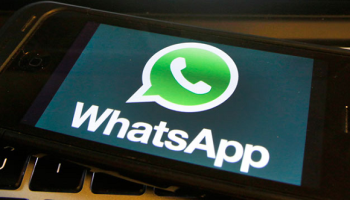Helping News May, 2017 Issue 107
There’s no evidence that most mental health apps actually work
Information gathered from Technology October 2015, Simon Leigh
“The unmet need for mental health services is reaching an unprecedented level thanks to rising demand and continually falling NHS resources. Monthly referrals to community mental health teams increased by 13 per cent in 2013, and by 16 per cent for crisis services. Yet more than 200 full-time NHS mental health doctors and 3,600 nursing positions have been lost over the same period (Leigh),” -due to denial of payment, reduced therapy time from insurance cost saving efforts, and professional burnout.
As so many of us now have access to and rely on smartphones, one increasingly popular solution to this problem is apps which provide automated forms of mental health treatment. Apps are relatively inexpensive, widely available and, unlike traditional NHS mental health services, can be used by more than one person at any one time. Some apps, such as Big White Wall, offer a community support service with access to trained healthcare professionals at any time of the day. Others provide automated cognitive behavioral therapy (CBT) and methods for mood tracking or self-reflection.
Only one half of people have a choice about when they receive conventional mental health therapy and just 13 per cent can choose where. Using mental health apps would allow people to access a form of treatment on their terms and could even extend therapy to people who are currently unable to engage with it. This could include the teenager who is too anxious or stigmatized to discuss his or her condition face-to-face, the armed forces serviceman who needs anonymity, or the single mother who struggles to schedule an appointment around her childcare and work commitments.
No hard evidence
The reality is that there is a very significant gap between the theoretical benefits of mental health apps and what they are likely to deliver in practice. Of the 27 mental health apps endorsed and recommended through the NHS health apps library, 14 are designed to treat or manage the symptoms of depression and anxiety. They are frequently described as helping users to do things like control stress, improve well-being and beat depression.
Yet only four of these apps currently provide any hard evidence of results reported by real-world users. And just two make use of NHS-accredited ways of measuring the effectiveness of mental health treatments, such as the Generalised Anxiety Disorder 7 questionnaire. This leaves a question over the effectiveness of the remaining 12 out of 14 (85 per cent) of NHS-accredited mental health apps.
In 2013, there were 1,536 depression-related apps available for download but just 32 published research articles studying their effectiveness. This pattern of high availability and a low evidence base can also be seen in apps for treating bipolar disorder, bulimia nervosa and post-traumatic stress disorder (PTSD).
But the real problem is with the apps that come with a seal of approval from a world-leading healthcare system. Accreditation by the NHS gives apps an appearance of quality, and the reputation and legitimacy of an app correlates with how many people are likely to download it.
Three in ten people with an untreated mental health issue choose to pay for private treatments, and apps that have yet to demonstrate any measurable benefits are a potential waste of their money.
More information coming...


